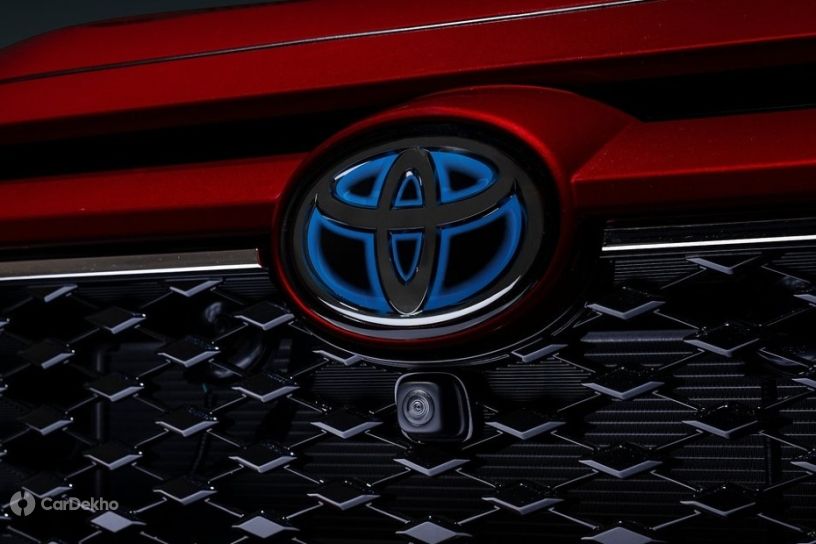Toyota Takes First Step Towards Localised Production Of Hybrid SUV To Rival Hyundai Creta
Modified On May 07, 2022 11:49 PM By Sonny
- Write a comment
The Japanese carmaker has committed to an investment of Rs 4,100 crore in an MoU with the Gov. of Karnataka
-
Toyota will be setting up local manufacturing of electric powertrain parts and components.
-
Its next big offering will be a compact SUV, codename D22, with a hybrid powertrain option.
-
This hybrid SUV will also be shared with Maruti Suzuki ensuring volumes worth the investment.
-
The MoU states that the investments are aimed at promoting greener technologies while also setting up a manufacturing hub in India.

Toyota’s entry into the compact SUV space will be offered with an electrified hybrid powertrain. Since this upcoming SUV model, internally codenamed D22, will also be shared with Maruti Suzuki, it is going to be heavily localised to make it more affordable. That journey begins now with Toyota signing an MoU (memorandum of understanding) with the Government of Karnataka to invest Rs 4,100 crores.

The MoU was exchanged between Hon’ble Chief Minister of Karnataka Shri Basavaraj Bommai and Vikram S. Kirloskar, Vice Chairman Toyota Kirloskar Motors. As stated in the MoU, the investments aim to promote greener technologies, mitigate carbon emissions, and enable local production facilities to build electric powertrain parts and components. The Toyota Group of Companies will be making systematic investment towards making India a manufacturing hub.
“I believe that such investments are needed to provide technologically viable and economically competitive alternatives to fossil-fuel-intensive technologies in vehicle mobility space” mentioned Vikram S. Kirloskar in his statement on the occasion. Toyota will also be investing an additional Rs 700 crore for a total of Rs 4,800 crore into its Indian operations.
Also read: Toyota And Maruti’s Hyundai Creta Rival To Be Manufactured Solely By Toyota

The hybrid powertrain that will be manufactured in India is expected to be the same as the one offered in Toyota’s global model, the Yaris Cross. It uses a battery, a motor and a 1.5-litre petrol engine for a system that can switch between hybrid, engine-only and pure EV modes. The main advantage of its self-charging hybrid is the significantly higher fuel economy and lower emissions.
Related: Toyota Will Localise Its TNGA-B Platform For Upcoming Compact SUV
Toyota will also support the significant investment into the localisation of its hybrid powertrain by exporting it to other markets. While it will debut in the upcoming Hyundai Creta rival, it could be offered in other future models for India as well. The hybrid setup provides a stepping stone for many buyers who are not willing to jump to EVs while the supporting infrastructure is still under development. Its localisation will make hybrids cheaper than ever, even without government support.














